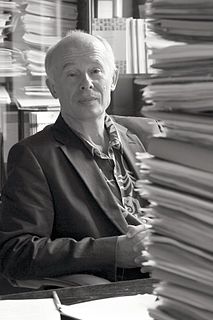A Quote by Nicholas Stern
The greenhouse effect is something you can observe experimentally - and most people have observed the greenhouse effect themselves, in greenhouses. Yes?
Quote Topics
Related Quotes
The general public doesn't know and probably doesn't care about punctuated equilibria nor indeed should they, or the greenhouse effect on some other planet - they barely have the ability to cope with the greenhouse effect on their own planet. So I think you have to distinguish between the broad visibility of a scientist when he or she is speaking to a general public and trying to address general issues and the continued position that a scientist may have into the history of a particular subject.
Are global temperatures rising? Surely, they were rising from the late 1970s to 1998, but 'there has been no net global warming since 1998.' Indeed, the more recent numbers show that there is now evidence of significant cooling [...] Mankind is responsible for just a fraction of one percent of the effect from greenhouse gases, and greenhouse gases are not responsible for most of what causes warming (e.g., the Sun).
... the consensus of the scientific community has shifted from skepticism to near-unanimous acceptance of the evidence of an artificial greenhouse effect. Second, while artificial climate change may have some beneficial effects, the odds are we're not going to like it. Third, reducing emissions of greenhouse gases may turn out to be much more practical and affordable than currently assumed.
... The reality is that atmospheric CO2 has a minimal impact on greenhouse gases and world temperature. Water vapor is responsible for 95 percent of the greenhouse effect. CO2 contributes just 3.6 percent, with human activity responsible for only 3.2 percent of that. That is why some studies claim CO2 levels are largely irrelevant to global warming.




































